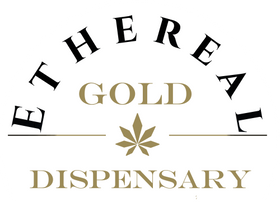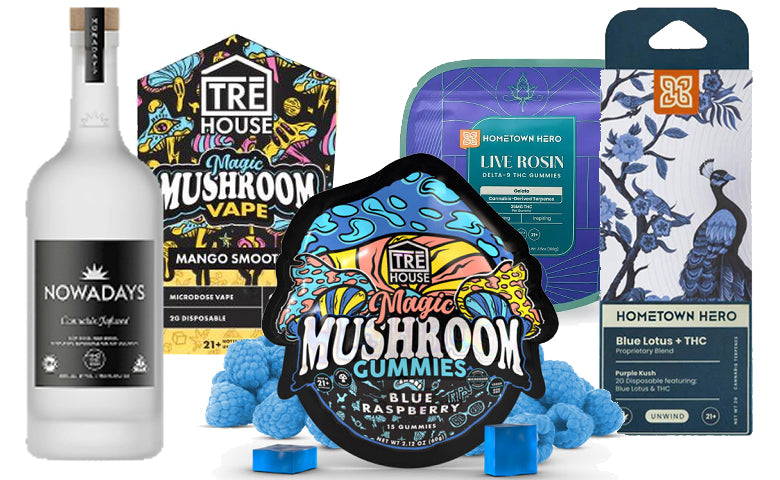The fascinating world of cannabis has intrigued scientists, researchers, and enthusiasts for years. A central point of this intrigue? The THC molecule, a marvel in its complexity, responsible for the psychoactive effects of cannabis. As we delve deeper into the intricacies of molecular THC, we also note a rising trend among enthusiasts: the THC molecule tattoo. But before one gets inked, it's essential to differentiate between the structures of Delta-9 THC, Delta-8, and THC-P. Let's embark on this enlightening journey.
The Pivotal Role of the THC Molecule
The THC molecule, scientifically known as Tetrahydrocannabinol, is a compound primarily responsible for the psychoactive effects of cannabis. When one thinks of the euphoria or the altered state of consciousness commonly associated with cannabis consumption, they're experiencing the effects of molecular THC at work.
The Science Behind Molecular THC
The Molecule THC has a unique structure that allows it to interact with the body's endocannabinoid system, specifically with the CB1 receptors in the brain. This interaction is what gives cannabis its distinct effects. It's this intricate dance of molecules and receptors that scientists are still striving to understand fully. Furthermore, the chemical intricacies of THC go beyond just its bond with CB1 receptors. There are secondary interactions, pathways, and even metabolites like 11-hydroxy-THC that contribute to its overall effects. Each element of molecular THC and its journey within our system is a testament to the profound and multifaceted nature of this cannabinoid.
Delta-9 THC Molecule: The Star Player
When discussing the THC molecule, it's crucial to address the Delta-9 THC molecule. This specific isomer of THC is the main psychoactive cannabinoid in cannabis. Its structure is slightly different from other cannabinoids, making it uniquely capable of inducing the sensations cannabis is so famous for. Moreover, the Delta-9 THC molecule's prominence is not just limited to its structural difference but also its prevalence. While there are over 100 cannabinoids present in the cannabis plant, Delta-9 stands out due to its abundance and the profound impact it has on the human psyche. Its dominance in the world of cannabinoids and its influence on users makes it an essential subject for both enthusiasts and researchers alike.

THC Molecule Tattoo: A Symbol of Passion and Precision
In recent years, with the burgeoning acceptance and decriminalization of cannabis, many avid users and supporters have chosen to display their passion with a THC molecule tattoo. It’s a statement of their commitment and appreciation for this remarkable plant. However, a word of caution: if you're contemplating getting this symbol tattooed, ensure that you're opting for the correct molecular structure of Delta-9 THC.
While Delta-8 and THC-P naturally occur in cannabis and have structures that closely resemble that of Delta-9 THC, their effects, while similar, are not identical. The key is in the details. Any tattoo artist worth their ink will be meticulous about the exact structure, but as the recipient, it’s equally important to be informed.
Federally Legal Delta-9 THC
The complexities surrounding the THC molecule are vast and intricate. From its unique interaction with our biological systems to its representation in modern culture through tattoos, the THC molecule remains at the forefront of cannabis discourse. As we grow in our understanding, one thing is clear: the molecule THC and its variants like Delta-9 are not just mere chemical compounds; they are the heart and soul of the cannabis experience.
The 2018 Farm Bill allows cannabis users to enjoy THC products legally nationwide as long as they meet the requirements set by the federal government. These full panel tested cannabis products are made with that same glorious molecule of THC that is known for its intense psychoactive effect. Enjoy an extra bonus with 10% off any order with the code AUGUSTBLOG today!
FAQ
What is the THC molecule?
The THC molecule, or Tetrahydrocannabinol, is the primary psychoactive compound found in cannabis that induces sensations like euphoria and altered perception.
How does molecular THC interact with the human body?
Molecular THC binds with the CB1 receptors, predominantly located in the brain. This interaction leads to the well-known psychoactive effects of cannabis.
Are there different forms of THC?
Yes, there are several isomers of THC, with Delta-9 THC being the most prevalent and psychoactive. Other forms like Delta-8 and THC-P are also found in the cannabis plant but have slightly varied effects.
Is Delta-9 THC the only psychoactive compound in cannabis?
While Delta-9 THC is the main psychoactive compound, there are other cannabinoids in cannabis that can influence the user's experience, either on their own or through an entourage effect.
Why is it important to differentiate Delta-9 THC from other cannabinoids for tattoos?
It's vital because each cannabinoid has a unique molecular structure. Ensuring the correct representation, especially for something permanent like a tattoo, showcases accuracy, understanding, and respect for the cannabis science.







